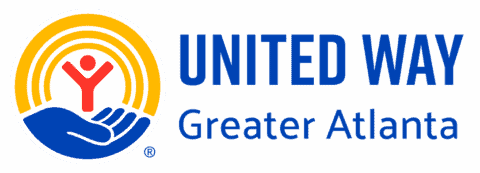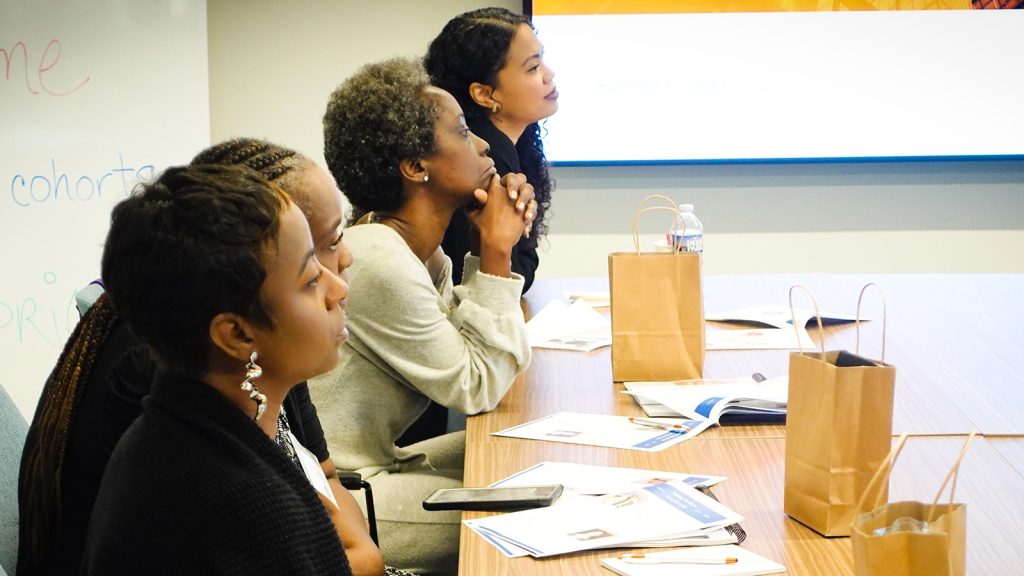When Teneka Williams noticed that there weren’t any storefront flower shops in her Southwest Atlanta neighborhood, at first, she just filed that information away for later. She was a librarian—had been for fifteen years—not a florist, and certainly not a business owner. She arranged floral bouquets from grocery store blooms as a Sunday hobby, and the rest of the week, went back to work at the library. In 2019 though, she couldn’t ignore the nudge any longer and decided to start Royal Petals ATL.
Location was everything. Situated between eight funeral homes, Royal Petals ATL helped the community navigate through a difficult time during the pandemic that started just a few months after opening, providing floral arrangements not only for anniversaries and occasions, but also get-well bouquets, memorial displays, and wreaths.
“We’re the heart of the community. Usually with small businesses you’re going to get more of that personal touch,” said Teneka. “I know that my small business played a big part in that pandemic and managing the crisis that resulted.”
A stacked deck for small businesses
The same pandemic that turned customers to Royal Petals also put undue strain on small businesses in the slower economy that followed. At United Way of Greater Atlanta, we started seeking ways to make sure that entrepreneurs could continue operating in the communities they serve.
“As we look at the community, one of the things that we’ve noticed during COVID was a lot of our small business partners within the community were struggling to gain access to capital, but also to the technical skills needed to grow and build their business,” said Matthew Sutton, Director of Partnerships at United Way of Greater Atlanta.
On average, in Atlanta, there are seven Black-owned businesses per 1,000 residents, and these are core community assets. In neighborhoods with more, each additional Black-owned small business correlates to significant positive well-being outcomes for the entire neighborhood beyond just economic. One study also found links to improved community health equity, public safety, and employment growth.
>> READ MORE: The vital role of Black-owned businesses in enhancing neighborhood well-being
However, 80% of Black-owned businesses close within the first 18 months, as opposed to 30% of small businesses on average. Women-owned businesses similarly are one of the highest growing small business categories, but face disproportionate challenges, including lower average loan sizes and limited access to venture capital funding.
To answer these challenges, United Way of Greater Atlanta launched Building Resilient Entrepreneurs (BRE). Through workshops, networking, and access to capital, this program seeks to remove barriers by women-owned and BIPOC-owned small businesses, because we see the potential for small businesses to transform the communities which they serve.
Teneka is one of the business owners taking part in BRE’s inaugural cohort, alongside fourteen other small businesses representing industries such as food and beverage, wellness, gift products, and B2B services.
“Small business owners, they are leaders in their community, and a lot of times they are that economic mobility driver for a community holistically. That’s the main reason why it’s so important that we celebrate our small businesses, not only during small business month but throughout the year, and find ways that we can support, patron, and even advocate for more small business development in these areas,” said Matthew.
A launchpad to business growth
In the cohort, Teneka and her fellow entrepreneurs attend monthly learning sessions on topics like finances, balance statements, insurance, and business banking. Even after six years of operations, Teneka still found valuable insights in learning how to tell the story of her business through its finances.
“You should have balance statements, and someone should be able to just look at those and tell where you are in your business, and whether you’re successful or not and whether you need help,” she said.
We also offered a savings match at the end of the program with the opportunity to pitch for additional capital at a Shark Tank style SPARK Prize competition at the end of the cohort.
But beyond all the resources offered, Teneka and many of the other business owners in the program agreed that BRE gave them access to an entrepreneurial community, and that has helped them feel less alone in their business journey.
At Truist Small Business Night at the Georgia Aquarium, the BRE business owners had the opportunity to network with other established Atlanta-based businesses and experts from our program partners Truist, Aprio, and UPS. That experience planted the seeds of a future, flourishing Royal Petals ATL, one bigger than what she could have ever imagined when she first quit her job as a librarian.
“Sometimes when we hear ‘small business,’ we think that we’ll always be a small business,” said Teneka. “But you don’t have to be, and this program introduces that goal. You can grow and go so many places.”
We hope to bring BRE to more business owners in the future, helping them overcome barriers, build wealth, and continue offering their communities vital services. If you’re interested in hearing about programs, you can sign up here, and if you’d like help support our work with entrepreneurs, consider giving today.

